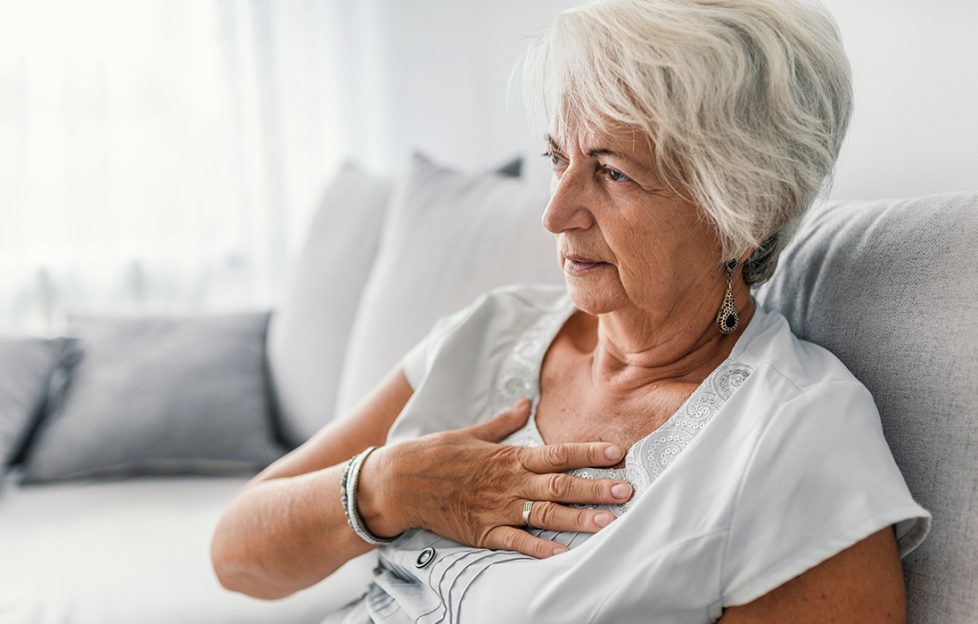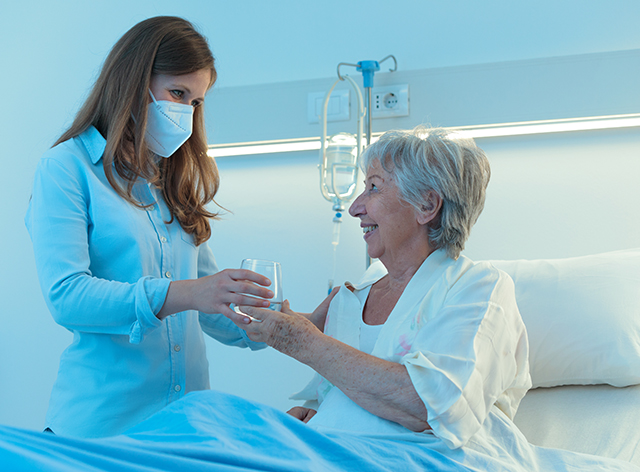Dr Philippa Kaye On Blood Cancer

Bruises and breathlessness can be warning signs of blood cancer, Dr Philippa Kaye explains.
Deirdre (67) had suddenly got extremely tired in the last couple of weeks. Her husband had been nagging her to call us but she thought it would improve and like so many people, hadn’t wanted to put more pressure on the NHS.
Before I continue, please remember that whatever the current backlogs, the NHS is open, as is your GP surgery. You may have a phone or video call initially, depending on your local practice but you will be seen if you need it, so please don’t put off contacting your GP.
Back to Deirdre and her husband. She got in touch when she noticed that she had begun to get breathless when climbing stairs. She had a few bruises, but didn’t recall hurting herself.
I arranged for blood tests and a day or so later received a phone call from the laboratory.
A high white blood cell count can be a cause for concern.
Deirdre had an extremely high white cell count and I contacted her to go to hospital urgently, where she was diagnosed with a form of leukaemia.
What is leukaemia?
Leukaemia is a cancer of the white blood cells which occurs in both children and adults. There are different types which can come on quickly (acute), or more slowly (chronic). Leukaemia is further defined by the kind of cell it came from.
Deirdre had acute myeloid leukaemia, the commonest type in adults. Acute lymphoblastic leukaemia is commonest in early childhood; while chronic lymphocytic leukaemia and chronic myeloid leukaemia also tend to occur in adults.
What are the symptoms of leukaemia?
Symptoms of acute myeloid leukaemia tend to come on over a few weeks and include the fatigue, shortness of breath and easy bruising that Deirdre had. Other symptoms include a fever, sweating, unintentional weight loss, looking pale, flat red or purple spots on the skin which don’t go away when you put a glass on them, frequent nosebleeds or bleeding from the gums. There can also be swollen lymph nodes in the neck, armpit or groin, or tummy, bone or joint pain.
You may get frequent infections as although there are high numbers of white blood cells (which are involved in fighting infections), these are immature and do not function as normal. Many of these symptoms could have benign causes, but please do get checked out.
What causes leukaemia?
The cause of acute myeloid leukaemia (AML) is often not known but it’s associated with previous cancer treatment such as radiotherapy and chemotherapy and other causes of exposure to high amounts of radiation, as well as smoking.
How is it diagnosed?
In hospital Deirdre had a bone marrow biopsy – a sample of your bone marrow is taken from your hip. Local anaesthetic is used, but it can be uncomfortable. The whole procedure takes about 30 minutes. Deirdre said there was some bruising and she felt sore for a few days. She also had a chest X-ray and you may have genetic testing, an echocardiogram (ultrasound of the heart) or a lumbar puncture depending on which organs may be affected.
What support is available?
Deirdre said the diagnosis was a huge shock, as everything happened so quickly from development of symptoms to being diagnosed and starting treatment.
She was in touch with a Maggie’s cancer support centre. Her medical team had told her things were going well and she was looking forward to finishing treatment soon.
Treatment for acute myeloid leukaemia
Treatment for acute myeloid leukaemia often involves chemotherapy. There are generally two phases in this case: an induction phase which aims to kill off the cancerous cells followed by consolidation chemotherapy once the AML has gone.
If it is thought that you aren’t well enough for induction chemotherapy, a less intensive version may be used. Blood transfusions are often required and antibiotics to prevent infections. If the chemotherapy is not effective then you may be offered a bone marrow or stem call transplant.
Advice given in this article and on the My Weekly website and magazines is not meant to replace personalised medical advice from your doctor. If you have any health concerns please see your doctor.
Article written on October 21, 2021; article reviewed and updated on October 8, 2024.
Each week we’ll ask Dr Philippa Kaye to talk about a prominent health issue, so look out for more articles in our health and wellbeing section in coming weeks. Read her advice on Cataracts, Heart Attacks in Women, Ulcerative Colitis, Pre-diabetes, Skin Cancer, Allergies, Parkinson’s Disease, Shingles, Ovarian Cancer, Endometriosis, Long Covid and Ticks and Lyme Disease.






